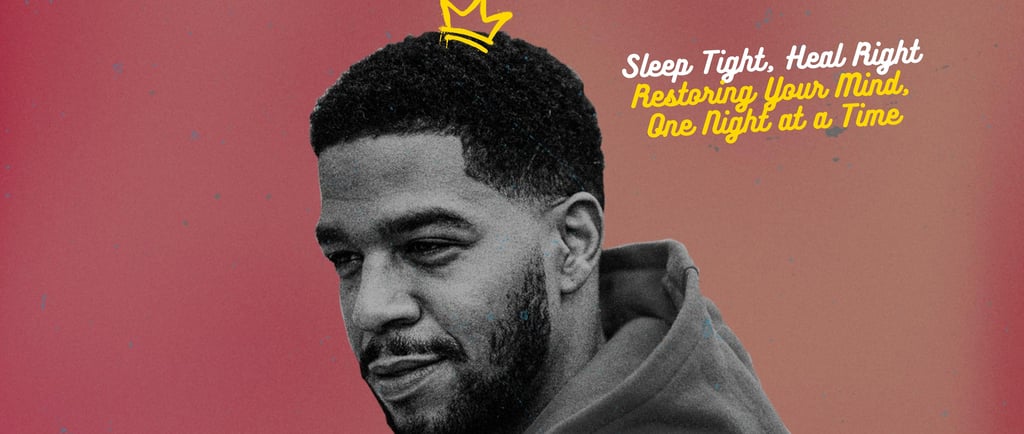Sleep Tight, Heal Right Restoring Your Mind, One Night at a Time
Sleep isn’t just for rest—it’s vital for emotional stability, focus, and stress management. How Poor Sleep Affects Mental Health dives into the powerful connection between your sleep habits and your mental well-being, especially for those in high-pressure, late-night industries. Learn how lack of sleep impacts your mood, brain function, and resilience—and get actionable tips to protect your mindset by prioritizing rest.
SLEEPMENTAL HEALTH
dj miss kittie
5/14/20252 min read


How Poor Sleep Affects Mental Health
Sleep is a cornerstone of mental well-being, yet it’s often overlooked—especially in high-energy lifestyles like nightlife and performance industries. Poor sleep doesn’t just make you feel tired; it can profoundly affect your mental health. Understanding the connection between sleep and your emotional and cognitive well-being is essential for maintaining balance in your life.
The Sleep-Mental Health Connection
Sleep and mental health are closely intertwined. While poor sleep can contribute to mental health challenges, existing mental health issues can also disrupt sleep, creating a harmful cycle. Here’s how sleep influences your mental health:
1. Regulating Emotions
Sleep plays a crucial role in emotional regulation. Without adequate rest, you’re more likely to experience heightened emotional reactivity, irritability, and difficulty managing stress.
2. Supporting Brain Function
During sleep, your brain processes memories, consolidates information, and clears out waste products. Poor sleep impairs cognitive function, making it harder to focus, solve problems, and make decisions.
3. Balancing Stress Hormones
Sleep helps regulate stress hormones like cortisol. Chronic sleep deprivation keeps cortisol levels elevated, which can contribute to anxiety and feelings of overwhelm.
Mental Health Risks of Poor Sleep
1. Increased Risk of Depression
Sleep deprivation and insomnia are strongly linked to depression. In fact, poor sleep can be both a symptom and a contributing factor to depressive disorders.
2. Heightened Anxiety
Lack of sleep can amplify feelings of worry and unease, making it harder to cope with everyday challenges. Sleep-deprived individuals often experience a heightened fight-or-flight response, which fuels anxiety.
3. Impaired Mood Regulation
Poor sleep disrupts the balance of neurotransmitters like serotonin and dopamine, which play key roles in mood stability and happiness.
4. Memory and Concentration Issues
Sleep is essential for memory consolidation and focus. Without it, you may struggle with brain fog, forgetfulness, and reduced productivity.
5. Increased Risk of Burnout
A lack of restorative sleep can lead to emotional exhaustion, a core component of burnout, which is common among those in high-pressure, irregular-schedule jobs.
Strategies to Protect Mental Health Through Better Sleep
1. Establish a Sleep Routine
Go to bed and wake up at consistent times, even on weekends. A regular schedule helps regulate your body’s internal clock.
2. Limit Stimulants
Avoid caffeine, nicotine, and heavy meals close to bedtime. These can disrupt your ability to fall asleep and stay asleep.
3. Create a Calming Pre-Bed Routine
Dedicate the hour before bed to relaxing activities, such as reading, meditating, or taking a warm bath. Avoid screens, as blue light can suppress melatonin production.
4. Make Your Sleep Environment Optimal
Use blackout curtains, a comfortable mattress, and white noise if needed. Keep the room cool and free from distractions.
5. Practice Mindfulness and Stress Management
Techniques like mindfulness meditation, deep breathing, and journaling can help calm a racing mind and improve sleep quality.
6. Monitor Your Sleep Patterns
Track your sleep using apps or wearables to identify patterns and areas for improvement. This can help you stay accountable and make targeted changes.
7. Seek Professional Help When Needed
If poor sleep persists, consult a healthcare provider or therapist. Cognitive Behavioral Therapy for Insomnia (CBT-I) is an effective treatment for sleep-related issues.
Breaking the Cycle
The relationship between sleep and mental health is bidirectional, meaning that improving your sleep can have a profound positive impact on your mental well-being. By prioritizing rest, creating healthy habits, and seeking support when needed, you can break the cycle of poor sleep and mental health struggles. Protecting your sleep is one of the most powerful steps you can take for a healthier mind and a more balanced life.
